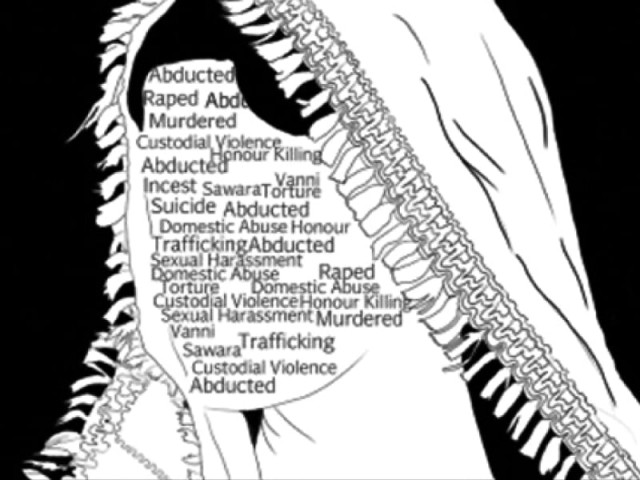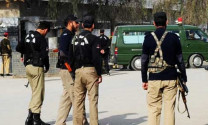Seeking justice: Only one rape conviction in the last five years
Federal capital has the fewest convictions and the lowest conviction rate in the country

Only one of the 90 rape cases registered in the capital during the last five years has led to a conviction.
This jaw-dropping statistic was provided by the Interior Ministry in response to a query from Senator Sughra Imam during the Senate’s question hour session on Wednesday.
In response to Imam’s question on the number of rape cases registered in the country and the number of convictions during the last five years, State Minister for Interior Baleeghur Rehman provided a year-wise provincial breakup.
The minster revealed that a total of 14,583 rape cases have been registered in Pakistan during the last five years, the most of which were in Punjab — 12,795 — and only 949 cases of them led to convictions.
While the number of cases registered increased with time, the conviction rates have fluctuated from 195 in 2009 to 136 in 2013.
Speaking to The Express Tribune, Rehman said that orders have been issued to the police to look into the low conviction rate in Islamabad.
Providing provincial statistics, the minister mentioned that a total of 1,077 rape cases were registered in Sindh out of which 38 were convicted. Only three cases were convicted last year, the lowest in five years. In Khyber-Pakhtunkhwa, a total of 458 rape cases were registered, 35 of which led to convictions. Last year, out of the 108 cases reported, not a single case led to a conviction. In Balochistan, 92 cases were registered with the accused being punished in just 10 cases. In AJK, 60 cases in the past four years have led to zero convictions. There were 3 guilty verdicts in the province back in 2009. Gilgit-Balistan had the highest conviction rate, with five out of the 11 cases ending with guilty verdicts.
Rakshinda Parveen, a civil society activist, said human right activists and society are not on the same page in terms of punishment for the crime. She explained that even now, access to justice in Pakistan is defined by social class.
“Rape victims in Pakistan are either silenced with compensation or threatened to leave the community or country, while some even commit suicide,” she said.
Lawyer, Babar Sattar explained that it had become challenging to work within a broken justice system in Pakistan,while noting there was an additional issue of cultural attitudes when it came to rape cases. “At times the case might not work in the victims favour because of how our justice system functions,” he said.
The Protection for Women (Criminal Law Amendment) Act, 2006 created changes in two of the Hudood Ordinances- the Zina and Qazf Ordinance. A number of clauses referring to rape, kidnapping, abduction and forced marriage, among others, were removed from the Zina Ordinance and placed under the Pakistan Penal Code.
According to the 2006 law, the punishment for rape is death or imprisonment for at least 10 and up to 25 years, along with a fine.
Civil society has been demanding that the government formulate laws that require rape cases to be decided within six months. Facilities such as crisis centres, shelters for the victims, counselling, legal aid and assistance have also been demanded, along with better investigation methods and accountability of the police.
Job quality and job satisfaction
Speaking to The Express Tribune, SSP Islamabad Operations SSP Asmatullah Junejo suggested the low conviction rate could be linked to the pay packages given to investigation officers. He explained that while the reporting mechanism was working fine, the amount being paid to investigators for rape cases was relatively low, discouraging cops from taking up those cases.
The fee for investigation officers can go as high as Rs25,000 per case, dependent on the nature of the crime. Citing more common examples, Junejo explained that an illegal narcotics investigation would pay an investigation officer Rs11,000, while the payment for a crime as heinous as rape is only Rs7,000.
“The quality of work is compromised when incentives are low,” He said, adding, “Many officers are not willing to invest their time and energy in a task that is not rewarding,” He said.
He said that efforts are being made to encourage officers to manage higher case loads. He said that this year, ICT had reimbursed Rs300,000 in pending payments to investigation officers. Junejo said that there has been no discussion over revising the fees for investigating cases, but the simple fact that payments are being made on time has proven to be a positive step.
Published in The Express Tribune, November 9th, 2014.



















COMMENTS
Comments are moderated and generally will be posted if they are on-topic and not abusive.
For more information, please see our Comments FAQ